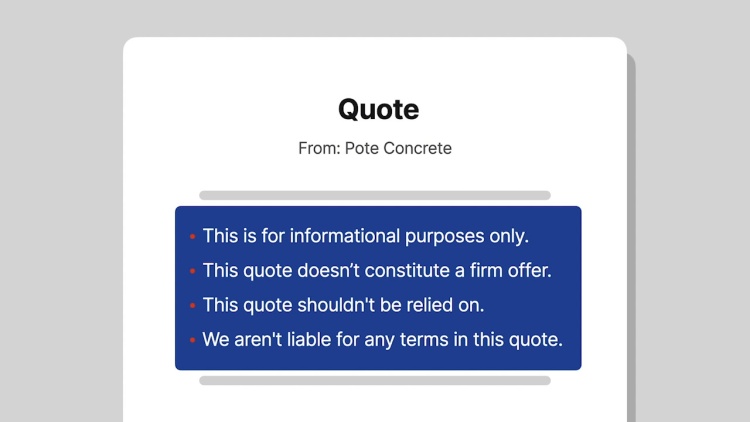Fletcher-Harlee Corp. v. Pote Concrete Contractors, Inc.
United States Court of Appeals for the Third Circuit
482 F.3d 247 (2007)

- Written by Josh Lee, JD
Facts
Fletcher-Harlee Corporation (Fletcher) (plaintiff) was a general contractor that solicited bids from subcontractors for a building project. Fletcher’s solicitation letter stated that all bids must be held open for 60 days and that the subcontractors must agree to be accountable for the prices and proposals submitted. This was standard practice in the construction industry. However, Pote Concrete Contractors, Inc. (Pote) (defendant) submitted a price quotation that stipulated the quotation was for informational purposes only, did not constitute a firm offer, and should not be relied on. The price quotation also stated that Pote did not agree to be held liable for the terms contained in the quotation. Fletcher submitted a bid on the building project that relied on Pote’s bid for a portion of the work. Fletcher was awarded the contract and attempted to enter into a written contract with Pote for the work described in the price quotation. Pote increased the price of the requested work, and Fletcher decided to contract with the next lowest bidder for that portion of the work. This change caused Fletcher to spend at least $200,000 more than expected. Fletcher sued Pote for breach of contract. Pote moved to dismiss the lawsuit, alleging that no contract existed. The district court granted the motion to dismiss, and Fletcher appealed to the United States Court of Appeals for the Third Circuit.
Rule of Law
Issue
Holding and Reasoning (Ambro, J.)
What to do next…
Here's why 907,000 law students have relied on our case briefs:
- Written by law professors and practitioners, not other law students. 47,100 briefs, keyed to 996 casebooks. Top-notch customer support.
- The right amount of information, includes the facts, issues, rule of law, holding and reasoning, and any concurrences and dissents.
- Access in your classes, works on your mobile and tablet. Massive library of related video lessons and high quality multiple-choice questions.
- Easy to use, uniform format for every case brief. Written in plain English, not in legalese. Our briefs summarize and simplify; they don’t just repeat the court’s language.





